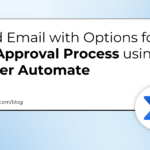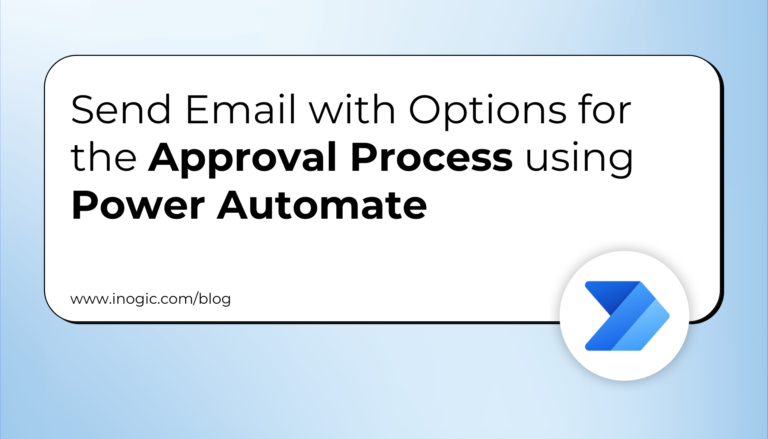Customers are the heart of every startup or small and medium-sized business (SMB). Without them, growth feels impossible. But keeping up with what your customers want can often feel overwhelming. That’s why you need customer tracking for your startup or growing business. It helps you learn more about your customers — what they like, what they need, and how you can serve them better.
Tracking customer behavior can be as simple as noticing patterns in what they buy or understanding how they find your business. With the right insights, you can make decisions that keep them happy and coming back for more. This blog will help you get started with customer tracking and provide best practices for your startup.
What you’ll learn:
What is customer tracking and why it matters
Customer tracking refers to collecting and analyzing information about how your customers interact with your business. It could mean tracking the products they buy, the pages they visit, or how often they engage with your emails. It’s a way to know your customers better so you can meet their needs.
Tracking helps you make the most of your resources by focusing on what your customers care about. It gives you a clear picture of who they are and what keeps them loyal. Instead of guessing what works, you can make decisions based on real data. This can lead to better products, smarter marketing, and stronger customer relationships.
Here’s a quick list of key customer information you should track:
- Purchase history to learn what they buy.
- Contact details for personalized communication.
- Traffic channels to track where they come from.
- Website search behavior to identify interests.
- Email metrics to measure reach and engagement.
- Feedback and reviews to improve products or services.
AI Tools for Small Business
Four ways you can maximize customer tracking for your startup
Tracking your customers might feel like a huge task, but it’s actually simpler than you think. Here are four effective ways to track your customers and get started on the right path.
1. Track website analytics
Your website is often the first place customers interact with your business. Tools like Google Analytics help you see how people use your website. You can track things like how many visitors you have, how long they stay, and which pages they visit.
For deeper insights, Tableau can transform your website data into easy-to-read visual dashboards, helping you uncover trends. More advanced tools like Hotjar also allow you to see website heatmaps, which show where users click and how often.
2. Monitor social media engagement
Tracking social media interactions helps you understand customer sentiment and see what people are saying about your business. Salesforce provides powerful small business marketing tools to manage and analyze your presence, keeping you connected with your audience and responsive to their needs.
Social media platforms like Instagram, Facebook, and TikTok are a goldmine for customer insights. Tools like Buffer or Sprout Social let you track how customers engage with your content.
3. Collect and analyze customer feedback
The best way to know what your customers think is to ask them. Use tools like SurveyMonkey or Google Forms to create surveys that gather feedback about their experience. You can also encourage customers to leave reviews on platforms like Google or Yelp.
4. Use an AI-powered CRM
A customer relationship management (CRM) helps you track every interaction with your customers, from initial inquiries to repeat purchases. With a CRM for your startup, you can easily follow up with customers, identify trends in their buying behavior, and personalize your approach. Tools like Starter Suite simplify customer tracking and help you build lasting relationships.
Customer tracking made easy
Track your customers the easiest way—with an AI-powered CRM.


Best practices for effective customer tracking
Simply collecting data isn’t enough. You need to use it effectively and ethically to grow your business. These best practices will make sure your efforts lead to better decisions.
Align your tracking with business goals
Align your tracking with business goals to support your overall business plan. If you want to increase sales, focus on tracking how customers respond to your offers or which products they buy the most. For marketing automation ,you can use tools to see how potential customers respond to your ads or emails. Tracking data like click-through rate (CTR), engagement, or even conversions can help you to create more personalized marketing campaigns.
Get the most out of your online store
If you run an online store, every customer interaction tells a story about what’s working and what isn’t. For commerce, tracking the right metrics can transform how you understand and serve your customers. Focus on key points like product views, cart abandonment rates, average order value, and repeat purchases.
Put data privacy and security first
Customers trust you with their data, and that trust is fragile. Startups often think they’re too small to worry about data security, but any breach can hurt your reputation. In fact, our latest research reveals that 64% of customers believe SMBs are careless with customer data. Using secure systems to protect customers’ data can set you apart as a business that cares about its customers.
When people know their data is safe, they feel more comfortable sharing it. This opens the door for better insights and stronger connections. Prioritizing privacy shows you value your customers’ trust, which can lead to increased loyalty and boost your startup’s sales.
State of the AI Connected Customer
Discover how AI, including generative AI and agents, is shaping customer sentiment, expectations, and behaviors — in our latest report.


Keep it simple and scalable
When you’re starting out, track only the data you can actually use. Avoid overwhelming yourself with unnecessary metrics. Focus on basics like purchase history or engagement levels, and expand your tracking efforts as your business grows. Scalable tools (like a CRM) allow you to start small and add features as your needs evolve.
Use the right tools for the job
Finding a tool that is easy to use and fits your needs is essential. A CRM system is one of the most effective tools to start with. Nearly 90% of companies use CRM tools today, with small business marketers leading in adoption compared to larger businesses. The data you collect through CRM becomes the foundation for better marketing, sales, and customer service strategies.
Why startups need AI for customer tracking
Small businesses today are using multiple channels to engage with customers. Phone, email, social, online chat, video chat, online communities — you name it. While this creates opportunities, it also leads to scattered data and disjointed customer experiences. SMB sales teams use about 10 channels on average, and 57% of customers now prefer digital engagement — making unified data crucial.
Artificial intelligence (AI) simplifies this. It collects and organizes data across channels, giving startups a clear view of their customers. It turns scattered information into insights, helping businesses personalize experiences and stay ahead.
Agentforce takes this a step further by actively working alongside your team. It handles tasks like answering questions, resolving issues, and scheduling meetings autonomously. It also analyzes data and executes tasks in real time, helping you deliver faster, more accurate service. This ensures your customers receive seamless, personalized support whenever they need it.
For startups, this means focusing more on growth and less on repetitive tasks. Whether you need a sales assistant to qualify leads or a customer service agent to resolve routine queries, Agentforce provides scalable solutions. It ensures consistency across customer interactions and offers 24/7 support, helping you deliver exceptional experiences while optimizing your resources.

How AI can help you understand customer behavior
AI offers deep insights into customer behavior and preferences. It can identify patterns, such as the products customers are most likely to purchase or the times they’re most active. With this data, you can personalize your marketing, recommend relevant products, and choose the best times to engage customers through emails or promotions.
AI also enhances customer service by quickly resolving common issues and predicting customer needs. It can handle routine inquiries, suggest relevant solutions, and predict customer needs. This allows your team to focus on complex issues that require a personal touch, improving both efficiency and customer satisfaction.
One of AI’s most powerful capabilities is predictive analytics. It uses past data to forecast future behavior, helping you stay ahead of trends rather than just reacting to them. For instance, it can alert you if a loyal customer is at risk of leaving, so you can act before it’s too late. It makes you proactive and helps you build lasting connections.
Best customer tracking software for small business
CRM tools help you keep all your customer data organized and in one place. With AI now in the picture, CRMs have become even more powerful. An AI CRM can become a smart assistant that helps you track and understand your customers better — and it’s all in the data. The result? You track your customers with AI-powered insights, and get ahead of the competition..
Starter Suite is an AI-powered CRM designed for small businesses. It combines tools for marketing, sales, service, and commerce into one platform. With it, you can easily organize your customer data, manage relationships, and gain valuable insights to guide your decisions.
A customer tracking success story with Starter
Here are a few examples of startups and small businesses that have used Salesforce Starter to simplify customer tracking and grow their business.
Take Snapology, a company offering STEAM education programs to children. Starter helps them centralize their customer data and keep track of partners, contacts, and program details all in one place. With everything organized, Snapology’s team can easily see which programs are working best and make smarter decisions.
According to Snapology, the four things that make Starter different from other CRMs are:
- How easy it is to use.
- How much you can customize everything to fit your needs.
- How modern the user interface is.
- How you get all the above for only $25 per month.
Data is king. If you don’t know your data, you’ll never know what strategies are going to be effective to grow. Starter Suite helped me get data and visualize it in a way that’s very simple and easy.
Adam Ruben, Owner, Snapology of Lehi
Make customer tracking easy with Starter Suite
Starter Suite gives your startup the tools to track customers, organize data, in one easy-to-use platform. With built-in guidance and quick setup, Starter helps you deliver better customer experiences from day one. Try Starter for free today and see how it can track your customers like a pro.









